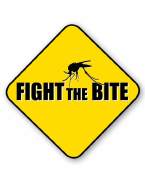Summer has arrived in Alberta, and with it: the risk of West Nile virus.
Much like you protect yourself and your loved ones from harmful UVA and UVB rays, Alberta Health Services (AHS) reminds you to make a summer habit of protecting yourself and your loved ones from mosquito bites, and their potentially severe health consequences.
“With exposure to mosquitoes comes risk of West Nile virus,” says Dr. Gerry Predy, Senior Medical Officer of Health, AHS. “Because some mosquitoes carry West Nile virus, it’s important to avoid being bitten at all.”
Whether gardening, golfing, fishing, travelling or even just relaxing outdoors, all Albertans should take these simple steps to prevent bites and protect themselves from West Nile virus:
- Wear a long-sleeved, light-colored shirt, pants, and a hat.
- Use insect repellent with DEET.
- Consider staying indoors at dawn and dusk, when mosquitoes are most active.
“These steps can make it harder for mosquitoes to find you, and remember: if mosquitoes can’t find you, they can’t bite you,” says Predy.
After being bitten by a mosquito carrying West Nile virus, humans can develop West Nile Non-Neurological Syndrome (formerly known as West Nile fever) or the more serious West Nile Neurological Syndrome.
Symptoms of Non-Neurological Syndrome can be uncomfortable, including fever, chills, nausea, vomiting, fatigue, skin rash, swollen glands and headache. For those individuals who do develop Neurological Syndrome, symptoms can be much more severe, including tremors, drowsiness, confusion, swallowing problems, high fever, unconsciousness, paralysis and even death.
From 2003 to 2014, more than 775 Albertans have suffered the consequences of West Nile virus infection. In 2013 alone, 21 cases of West Nile virus infection were confirmed in Albertan residents, 19 of which were acquired within Alberta.
“The data shows the very real and potentially severe risk of illness across the province,” says Predy. “Protect yourself, and ensure your loved ones do the same.”
To learn more about West Nile virus and reducing your risk, visit www.fightthebite.info.


